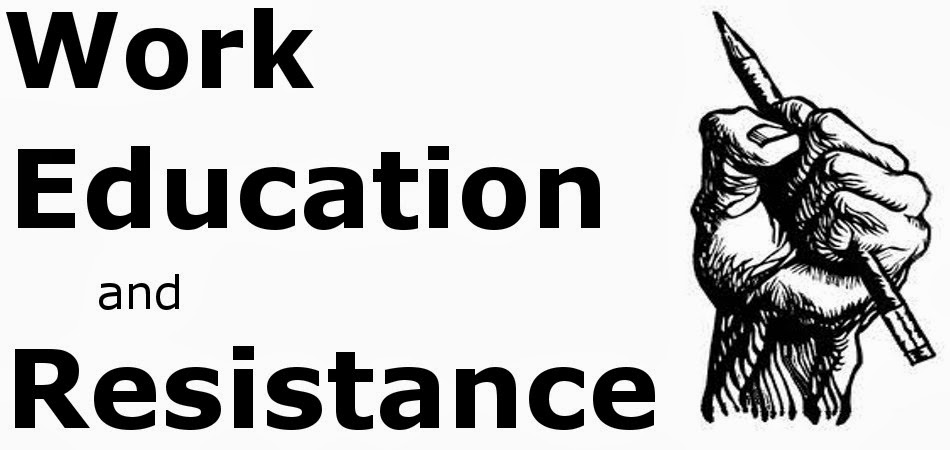Background of Intra-Union Politics
In the spring of 2011 a reform caucus going by Academic Workers for a Democratic Union (AWDU) took over the union, after seeing the union have no involvement in the UC student movement and building occupations of 2009 and 2010, and after a huge "No" vote was organized (that just barely lost) on a contract that many felt was a sell-out to university management.
The former leadership, which has been pejoratively called the "admin caucus" because of their conciliatory attitude toward administration, during the election where AWDU formed to challenge them they called themselves USEJ (United for Social and Economic Justice), and since then they have relinquished all claims to their (very direct) ties to the old administration (including some of them being in the old leadership and others working very closely with the old leadership members who are now involved in Democratic Party politics to this day on their campus, and they claim "You keep calling us USEJ, we aren't USEJ!" and "we aren't a caucus, we are opposed to the caucus system" (despite the fact that they constantly vote in blocs). They also recently tried to form an anonymous front group called Paycheck First, complete with a laughable blog full of deliberate distortions that was basically only read by members of AWDU in their spare time looking for a laugh. For the sake of ease I will just refer to them as USEJ just because its easier when I reference them below.
Since taking power AWDU has done much to make the union more democratic and is more active in social justice work. Campuses now have their own budgets so that they don't have to ask permission of the local President every time time they want a ream of paper for example (there will certainly be a post about this in the future, and at that time I will make sure to link to it here). Campus leaderships can now email their membership directly instead of submitting everything for approval to the President. Paid staff now make average TA salaries, not $50-80k. The examples go on and on, but the focus of this article is how AWDU has improved the bargaining process for new contracts.
AWDU has improved and democratized the bargaining process
Previously, bargaining sessions were closed door, bargaining team only, events that members could only hear about second-hand. Under AWDU every single bargaining session has been open bargaining, meaning open to all UAW members, and allies and members of the campus community. As such members have been able to not just come and witness the bargaining process, but more importantly PARTICIPATE in the process.
Previously bargaining began at the start of summer, when the vast majority of members aren't working and new agreements were reached typically before fall quarter started or during fall quarter. The previous contract was almost never allowed to expire.
Any historian of labor will tell you that negotiating a contract when your members aren't working, and not having the ability to strike, is a guaranteed way of getting a terrible contract. This is why our pay hasn't kept up with inflation over the last 10 years.
This has to do directly with the view that one has of the negotiation process itself, and the bargaining room in particular. AWDU realizes that negotiations have to be backed up with real on-the-ground member power, and that that will only come about by having a strong participatory process. People will only fight for something when they feel ownership of it, not when they think someone else will get it for them.
AWDU kicked off the contract campaign at the start of classes in the Fall. We invited members to come speak in the bargaining room about issues important to them. In this way, the bargaining room was not seen as a place where two small groups of advocates meet and try to come to a friendly agreement (read: the union conciliates and then pitches it as a victory to the members who were not involved and therefore have no way of judging what was possible and therefore if this was a win or a loss), this is why business unionism has lead to the decline of union membership in this country over the last 6 decades or so. The AWDU bargaining room was a place of mobilization. It was another arena in which we could use to mobilize members and through their participation get them more agitated and invested. We understood that we weren't going to come up with a clever argument to get a contract, that we were going to have to pressure management to give it to us, and that means building the mobilized member base.
This means that bargaining team members had to see themselves primarily as organizers, and that we needed to invest our time organizing on the ground, NOT spend it all in the bargaining room by ourselves with management, as the USEJ bargaining team members suggested. One USEJ member, from UCSB actually proposed that we meet 4 days a week every week in September! Aside from being problematic because it meant that we would be guaranteed to be working more than double the hours we were paid for, but also that members with children (such as myself and both the members from UCSC) would just NOT be able to participate. The biggest problem is that it would have forced us to literally spend 200% of our time in the bargaining room, and no time organizing.
